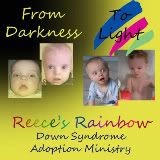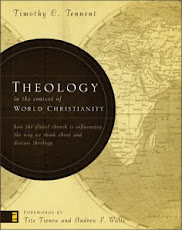Book Review: THE SCANDAL OF THE EVANGELICAL CONSCIENCE
Sider is probably best known for his book Rich Christians In an Age of Hunger, which ranked seventh on Christianity Today’s list of “The Top 50 Books That Have Shaped Evangelicals”. However, The Scandal of the Evangelical Conscience is the only book of Sider’s I have read at the present time, so all of my conclusions will be based solely upon this book, not his overall system of thought, as represented throughout his other works.
This book clearly seeks to identify and address one particular problem within Christianity. In the Introduction, Sider identifies the problem, as he sees it:
Scandalous behavior is rapidly destroying American Christianity. By their daily activity, most “Christians” regularly commit treason. With their mouths they claim that Jesus is Lord, but with their actions they demonstrate allegiance to money, sex, and self-fulfillment.
His purpose is to “understand the depth of the crisis, discover why it has happened, and develop obedient, faithful correctives.” These goals are quite lofty for a relatively short book; I do not think he completely achieves his aim, but he does take his readers most of the way to this end.
The book is compiled of five chapters which represent the structure of the book. Each chapter represents the next step in his process of proclaiming, understanding, and correcting this scandal. He begins, in the first chapter, by attempting to convince readers that most Christians have strayed from our true calling. Furthermore, not only have we strayed, but an overall wandering and secularization of the church has become one of the defining characteristics of American Christianity. He did succeed in thoroughly convincing this reader of these facts. A simple glance at the divorce rates among church members or the subscription list of most pornography websites will quickly prove his claim.
The second chapter attempts to further illustrate the extent of this scandal by contrasting contemporary American Christianity with the teachings of Christ, the writings of the Apostles, and the practices which characterized the early Christian community. This comparison is extremely sobering. The present departure from biblical expectations becomes devastatingly apparent when we read the writings of the Apostles and Early Church Fathers. Both initial chapters, are not only convicting, but are also very well documented and have proved to be quite useful.
The real work begins in the third and fourth chapters. Here, he starts assessing how and why the American church has gotten into this scandalous position. His first and primary assertion is that:
The heart of the problem is a one-sided, unbiblical, reductionist understanding of the gospel and salvation …most evangelicals do not even define the gospel the way Jesus did…we have propagated the heretical notion that people can receive forgiveness without sanctification, heaven without holiness.
I will firmly join him on this stand; this assertion is undeniably accurate. Although, I think there is a larger problem at the core of his data.
Next, he claims that American Christianity has followed our present culture in living out a gospel of self-fulfillment in which, “The individual [has] replaced God at the center of reality.” This has caused Christians to abandon the Bible as their moral compass and despise biblical practices such as Christian accountability and church discipline. He believes the church has abandoned a New Testament understanding of the church and embraced the process of secularization in which churches are simply “comfortable clubs of conformity” and are destined to become carbon copies of the fallen world. He calls this blatant heresy. Once again, while I agree with his conclusions, I also believe there is a prevailing dilemma which should be central to his entire discussion.
Finally, in the culminating chapter, he departs from rebuking and correcting to offer some rays of hope. This encouraging chapter primarily makes the point that whenever pollsters or researchers have looked past the answers on paper and dug deeper into the lives of profession Christians, there is a much different story to be told. He believes, and I agree, that there is no way to tell from mere polling alone if a person has truly experienced the new birth that must initiate a Christian life. He follows George Barna in identifying a subcategory within Christianity, those Christians with a biblical worldview: “Barna has discovered that only 9 percent of all born-again adults have a biblical worldview and only 2 percent of born-again teenagers.”
One of the major complaints I have with this book, and with Barna’s polling, is this sloppy and probably even heretical use of the label “born-again.” Born-again is a label created by Jesus himself during his dialogue with Nicodemus in the third chapter of John’s Gospel. If you read this dialogue, then it is clear that being born-again by the Spirit, putting faith in Christ for salvation, and becoming a new creature are all different descriptions of the same event which initiates the Christian life. Such a person will be changed and will diligently, albeit imperfectly, strive to live a life modeled after Jesus Christ and the principles set forth in Scripture. Such a person will look different than the rest of the world. Despite his misuse of such an important biblical term, what is encouraging about this fact is that, as he proclaims, “the small circle of people with a biblical worldview demonstrate genuinely different behavior.”
In the end, Sider offers a valid critique of the prevailing version of Christianity that has been created in our present culture. He clearly proves the stark contrast between what Christianity should look like, according to Scripture, and the lives being lived by the vast majority of Americans who categorize themselves as “born-again Christians.” Furthermore, he clearly identifies one of primary causes of this predicament: a grievous misunderstanding of the gospel.
This book should persuade all people who claim the name of Christ to examine our lifestyles, because we have all strayed from our true calling to some degree. However, I would add that the chief factor that must be understood is the fact that the majority of professing Christians are not truly born-again. This book would be more accurately subtitled Why Are Professing Christians Living Just Like the Rest of the World? As Jesus stated, “Not everyone who says to me, ‘Lord, Lord,’ will enter the kingdom of heaven, but the one who does the will of my Father who is in heaven” (Matt 7:21) Our savior also told his disciples that he was the good shepherd and, “he goes before them, and the sheep follow him, for they know his voice. A stranger they will not follow” (John 10:4-5). As Christians we are called to be followers of Christ, not mere name-claimers.




















Post a Comment